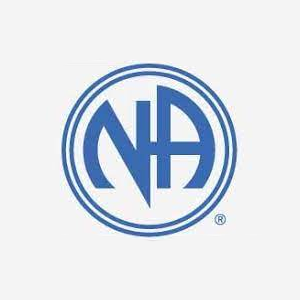Drug & Alcohol Rehab in Bradford

How Does Rehab Work?
Rehabilitation is the process that assists individuals in working towards restoring balance and mental health. Rehab focuses on addressing the patient holistically with individualised therapy aimed at addressing addictive behaviours. With guidance from a professional therapist or counsellor, coping mechanisms are taught and individuals can access much-needed care. Strategies deal with relapse prevention and clients can be assigned to an extended inpatient programme or move to an outpatient programme. With inpatient rehab (residential rehab), individuals will reside at the rehab centre for the duration of treatment. Outpatient services are an alternative option in which clients will attend daily/weekly sessions for therapy but will not attend a full-time programme. There are both free and paid outpatient services available within the UK.
What Happens During Residential Rehab?
When you are ready to enter rehab for drug and/or alcohol addiction, it is a courageous step towards recovery. Although achieving balance and breaking the cycle of addiction takes some time, it can be achieved. To assist you to make an informed decision regarding treatment, we look at the options available and what to expect during rehab.
During rehabilitation, you will receive an individualised assessment done by a professional. The purpose is to determine the best treatment plan based on your medical history with addiction and current condition. At this stage, medical staff will look for comorbid disorders such as mental health conditions that exist alongside addiction.
The next phase of a rehabilitation plan is detox. Detoxification from substances requires the removal of the drug or alcohol from the body, typically over a period of time that limits withdrawal symptoms. Detox should ideally be monitored professionally to assist those with withdrawal symptoms. When the substance is removed from your body, the next stage of treatment begins (therapy).
Rehabilitation includes meeting with a counsellor for private & group sessions, participation in skill-building activities as with an inpatient or residential rehab, or group meetings that are common with outpatient 12 Step programmes. We explore the various phases of rehab in further detail.
1. Assessment

Before treatment can be delivered, a medical assessment is conducted. This involves an in-depth look at individual medical history, drug use, and the presence of mental health issues. Clients can be accommodated with a medical assessment by phone. An admissions team will be responsible for the telephone assessment to decide on the best form of treatment. Along with determining a treatment plan, the admissions team or medical staff will have reliable information to facilitate the detoxification.
When you wish to pursue treatment for drug and alcohol addiction, a medical assessment needs to be completed. Assessments will guide therapy because it provides staff with the information, they need to develop a tailored treatment plan or advise on the appropriate intervention.
2. Detox

Detox is a period in which drugs and alcohol are no longer taken and cleared from the body. It is a process that is best monitored by medical staff in an inpatient facility.
It is recommended to have a managed medical detox because the experienced staff is readily available to help you through withdrawal. As the drug is no longer consumed, you may begin to experience withdrawal symptoms. Without professional aid, there is a higher risk of relapsing. Detoxification is followed by a fully tailored therapeutic programme. You can attend inpatient or outpatient therapy that is lead by trained addiction counsellors and a dedicated team.
3. Therapy

Therapy includes the one-on-one and group sessions you will attend with a qualified therapist, counsellor, and support staff. Treatment is delivered in both a residential rehab or as part of an outpatient service. The direction for therapy will depend upon individual circumstances.
Step by Step Process for Residential Rehab
To understand your medical and mental health history.
Arrange a suitable date to begin your journey to recovery.
Begin the managed withdrawal process from substances including alcohol.
To understand the root cause of addiction and how to overcome it.
Aftercare is provided to help manage the risk of relapse.
To help heal the wounds that addictive behaviour has caused others.
Find your Nearest Rehab Centre in Bradford
The nearest rehab centre is he Oasis Recovery Bradford – Drug Rehab & Alcohol Rehab Yorkshire
Address: Oasis Recovery Bradford – Drug Rehab & Alcohol Rehab Yorkshire, 21 Bolling Rd, Broomfields, Bradford BD4 7BG, United Kingdom
Call 0333 4444 432 to discuss your alcohol or drug rehab requirements and any other questions you may have about the process of residential rehab.
Outpatient Addiction Services in Bradford
From inpatient to outpatient services, the necessary treatment for substance addiction will depend upon the assessment and budget to determine the appropriate treatment option for you. For those who are interested in the flexibility and the affordability of outpatient addiction services, we take a closer look at what it entails compared with an inpatient treatment programme.
An outpatient service requires you to attend weekly therapy sessions. You stay at home while you visit the therapist, counsellor, or group leader to attend sessions. It allows one to continue working and attend to family commitments while receiving care and intervention.
When you have decided that outpatient treatment is an option you want to pursue, the next step is to find a suitable programme offered by a reputable company or charity.
NHS Free Addiction Services in Bradford

Pelican House, 10 Currer Street, Bradford, West Yorkshire BD1 5BA
WebsiteThe Benefits of Outpatient Services
A private outpatient programme is tailored to address client needs. The aim is to deliver a quality standard of therapy and introduce individuals to the coping mechanisms they need to become aware of the early signs of relapse. – outpatient programmes are also considered because it allows those struggling to remain employed or to tend to their family while receiving therapy. – Such support services are more cost-effective compared with residential treatment.
The Challenges of Outpatient Services
Because one remains in the same environment and is exposed to the same triggers, there is a higher risk of relapse and failure to complete an outpatient programme. Although the NHS and other UK-based charities provide free addiction services, treatment is not tailored to the individual’s needs and waiting lists are to be expected.

How Much Does Rehab Services Cost in Bradford?
Alcohol and drug addiction treatment within a residential centre typically costs between £1500 – £4000 per week. Residential rehabilitation is one of the more expensive forms of treatment for drug and alcohol addiction. For free and cost-effective services, charities and government-funded services offer care programmes for all individuals seeking help for addiction.
The NHS and charities including Turning Point will require a self-referral to be considered for treatment. You will also find many other affordable services (such as private counselling) or free therapies and community-supported programmes for those with drug and alcohol addiction. These groups include AA or Alcoholics Anonymous, Narcotics Anonymous, and Cocaine Anonymous.
Support Groups in Bradford

Monday Night Bradford Meeting Group
Alpha House Calderdale, 22 Clare Road, Halifax West Yorkshire HX1 2HX

Bradford Tuesday Literature Group
The Orchard, The Salvation Army,, Leeds Road, Bradford, West Yorkshire BD3 9NG

Bradford Step by Step (Krok Po Kroku) Polish
Jabez Hall, 1 North Avenue. BD8 7NH
The Pros and Cons of Seeking Treatment in Your Local Area
Pros
1. You are familiar with the area which may provide a layer of comfort/safety.
2. Loved ones can easily travel to visit or are close by.
3. You could save on the costs of travelling long distances for treatment, or free services may only be offered in your home town.
Cons
1. A local environment means access to drug dealers or other triggers. This is more of an issue if you decide upon outpatient programmes.
2. Failing to consider locations outside your local area could mean a missed opportunity for more valuable and rewarding programmes.
3. Addiction treatment programmes that are nearby don’t always provide the best standard of treatment.
The CQC website will provide information and ratings on a service in the event you are unsure regarding a particular service.
